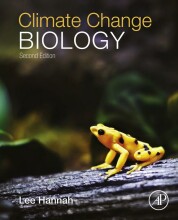Summary: Research Methodology In Environmental Science
- This + 400k other summaries
- A unique study and practice tool
- Never study anything twice again
- Get the grades you hope for
- 100% sure, 100% understanding
Read the summary and the most important questions on Research Methodology in Environmental Science
-
1 Deck 1
This is a preview. There are 25 more flashcards available for chapter 1
Show more cards here -
Research is systematic, what does that mean?
Following systematic, recognized procedures for doing research, i.e. Amethodical way of arriving at research questions,operationalizing keyconstructs , collecting data, modelling those data, makinginferences from the estimatesproduced by applying thestatistical model to the data. We need to be systematic so that others can do the same.Explicitly justify every step you take. -
Empirical data source
Knowledge acquired through observation. Based on measurements of variables, selected how? Necessarly also uses non-empirical tools such as logic. -
Non-empirical: knowledge based on logic or definition.
Models? E.g. Philosophy or mathematics. Logic works with premises and these are at least to some extent informed by observations from the world. There are thus some empirical aspects. -
Fundamental, pure of theory-oriented research
Gain knowledge for the purpose of improving or expanding the existing knowledge about a specific topic. In the long term this can also be helpful in solving problems. -
3 Deck 3
This is a preview. There are 11 more flashcards available for chapter 3
Show more cards here -
Steps conceptual framework
- Select key constructs in your research question
- Look at the literature that covers your problem using those constructs (and synonyms)
- Identify definitions of the key constructs (and links between key constructs)
- Use/adapt those definitions (and links) that make sense for your research
-
Combination of the tree tools (path, tree, facet) are informed by..
Your chosen conceptual framework. You cannot drag things into the diagrams that are not in the conceptual framework -
4 Deck 4
This is a preview. There are 10 more flashcards available for chapter 4
Show more cards here -
Most important reason that we distinguish between the scales
Determines the statistical procedures you can use in data analysis -
5 Deck 5
This is a preview. There are 24 more flashcards available for chapter 5
Show more cards here -
Construct validity vs predictive validity
Predictive validity can be regarded as a form of construct validity if it's supported by theory. Construct validity, however, is broader since it doesn't just focus on predicting effects, but on finding any kind of correlation between constructs consistent with your model -
Reliability: definition and how is it assessed?
An instrument is reliable if it gets the same reuslts in similar citcumstances, ie. If it is consistent.
Assessed by:
Repeated measures of a stable characteristic
Measurement by parallel instruments
Measurement by parallel units (e.g. Replicates) -
6 Deck 6
This is a preview. There are 44 more flashcards available for chapter 6
Show more cards here -
Major problem in causality: over-determination
if there are two causes of Y, where only one is sufficient to trigger Y, experimentally manipulating any of them without manipulating the other one as well would lead to the mistaken conclusion that none of them are true causes. E.g. Being shot by two guns at the same time. If one shooter is manipulated not to shoot, the victim still dies, but that does not mean that shooting has no influence on dying.
- Higher grades + faster learning
- Never study anything twice
- 100% sure, 100% understanding
































